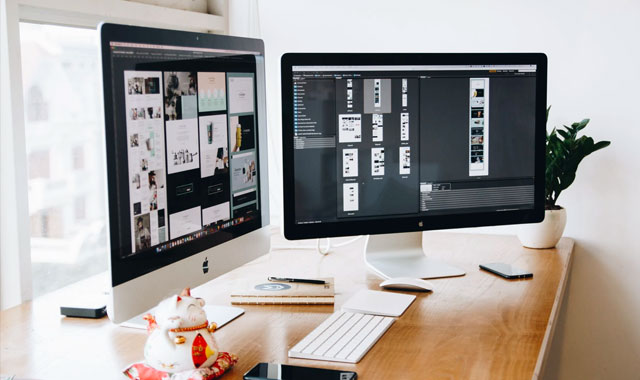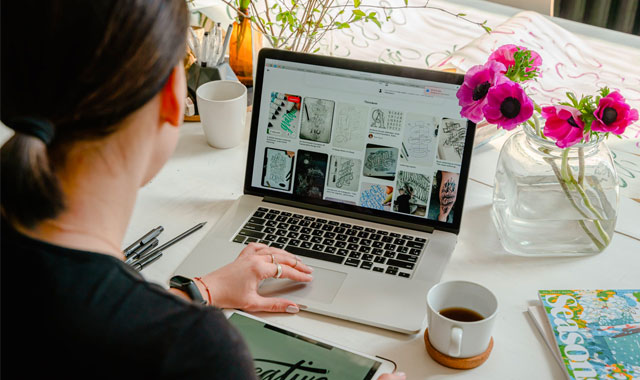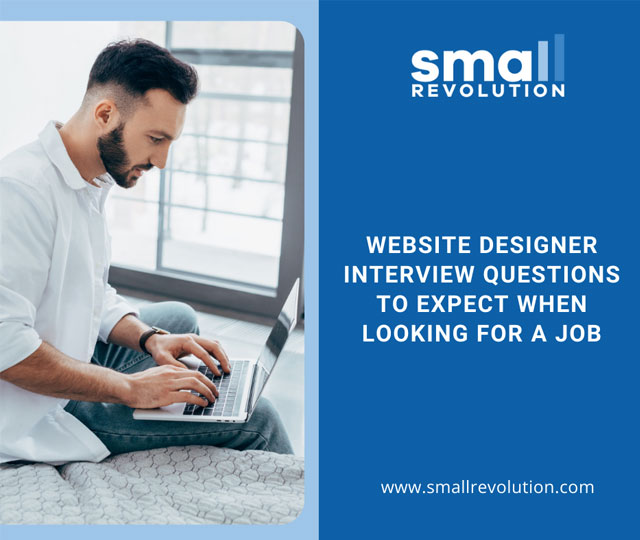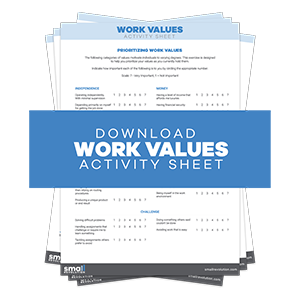Web design is a rapidly changing field that presents a lot of exciting career opportunities. However, to increase your chances of landing a job, preparing suitable answers for the questions you’ll be asked during the interview is key.
In addition to questions relating to skills, interviewers include non-technical questions that leave many interviewees tongue-tied.
However, that doesn’t have to be the case for you.
In this article, we’ll talk about:
- The most common questions you’ll likely encounter during an interview
- Sample answers to these questions
- Extra tips on giving appropriate responses
You’ll find that answering such questions is actually pretty easy, especially if you’ve prepared ahead of time.
Here’s your guide to ace that upcoming website designer interview.
1: Why Did You Choose Website Design as a Career?

Your answer to this question will give the interviewer insight into your motivation for entering and staying in the website design field.
Example answers:
- “I love learning about developments in tech. Since web design is a constantly changing field, this gives me the opportunity to continually update my knowledge.”
- “Exercising my creativity is very important to me. Website design allows me to follow project briefs while still giving them my own spin.”
The table below provides you with some excellent pointers for answering this question, contrasted with what to avoid.
| Great | Terrible |
| I view this field as excellent for job security | I need money badly |
| I have a passion for web design | I am the best web designer out here |
| I’ve been interested in it from a young age | My parents/friends are web designers |
Whatever your answer, ensure that it demonstrates why you chose to enter the field. Talk about why you love web design and how it makes you feel. Avoid generalized responses as much as possible like, “This job pays well.”
2: What Website Design Software Are You Proficient at Using?

This question helps the interviewer gauge whether you’ll be a good fit for the company. If you don’t have working knowledge of the software the company uses, the interviewer won’t be likely to schedule another meeting with you.
However, if you’re familiar with the software they use, this will give you an edge. You may even be paid more to train other team members.
Tips for answering this question:
- List all software and programs that you are currently using or have used in the past. State how long you’ve been using them, as well as your skill level for each.
- Be sure to mention that you’re willing to undergo training for software unfamiliar to you, if the company offers it.
3: Why Would You Like to Work for This Company?

By asking this, the interviewer gets to know more about your career goals. Your answer will also show how this position fits into your own long-term career plans.
Your answer will also demonstrate how much you know about the company and whether you’ve done any research on it.
Example answers:
- “This company has an impressive reputation. I would be proud to build my web design career with a company that has a history of leadership in this industry.”
- “I recently came across an article where this company was featured, talking about the firm’s focus on innovation. Since I’m keen on innovation, I believe I’ll fit well into the team.”
Expert Tip: Avoid answers that come across as unenthusiastic. Examples include, “The commute is short,” and “I saw an ad for this position so I applied.”
4: How Do You Deal With Stress While Handling Multiple Projects?

Being great at the technical aspects of the job is important, but that’s not all it takes to be a good member of a team.
How you handle stress will have a direct impact on how you interact with your colleagues.
Do you tend to retreat to yourself when overwhelmed with work? Or do you work yourself to the bone until all projects are finished? Whatever the case, the interviewer needs to know about your stress management techniques to see how you’ll interact with the team during such times.
Tips for answering this question:
- Be honest about how you respond to stress in the workplace. If you have any weaknesses in this area, state how you’re working on them. For example, you could say, “I’ve recently taken up practices, such as listening to music on the way to and from work and going for walks during my lunch break, to release pressure when I start getting overwhelmed.”
- Provide an example of a situation where you experienced stress from multiple projects and explain how you handled it.
5: How Have You Improved Your Knowledge in the Past Year?

Employers want to know whether prospective hires value self-development. This refers to both professional and personal development.
Example answer (professional development):
- “Over the past few months, there has been a slump in terms of available projects. I used this extra time to take online web design courses to polish my skills.” Remember to list the specific courses.
Example answer (personal development):
- “For several years, I’ve wanted to pick up a skill not related to work. I finally got the opportunity to learn how to do watercolor painting, gardening, pottery, etc. This has really boosted my creativity and helped me maintain a positive mental state.”
6: What Is Your Expected Salary?

The salary question tends to scare job candidates—especially those who have just started searching for work. There’s no need to be intimidated, however. The interviewer simply wants to know if your expectation is within their budget and whether they can make any adjustments.
Example answer:
- “Based on my experience and prevailing rates in the web design field, a salary of (quote your desired range) would be a great fit.”
Expert Tips: Ensure you research the salary for the position before going to the interview. Talk to fellow website designers at different firms to get an idea of their salaries.
Alternatively, you can use sites such as Glassdoor or Vault.com for a wider view of industry rates.
Remember, stating a salary range rather than a specific figure will make it easier for you to negotiate. Quote a range slightly higher than what you found in your research—negotiating upwards is harder than downwards.

7: Do You Have Any Questions for Us?

Contrary to what many people believe, interviews are not one-sided affairs. At least, they aren’t meant to be.
Candidates should be allowed to ask the interviewer some questions to gauge if they still want to work for the firm.
Example questions:
- Is there anything about my experience or skills that you would like me to clarify further?
- What does success in this role look like?
- Why did the previous holder of this position leave?
- What’s your management style?
- How do you receive and give feedback?
- Is there an option for remote working?
Unlock Your Next Level for That Interview
Getting ready for that website designer interview doesn’t have to be a daunting process. With adequate preparation and a dash of confidence, you’ll be alright.
Remember to avoid generic responses, as these are not memorable. Give honest answers that reflect your personal experiences.
Also, staying calm goes a long way. Viewing the interview as a conversation rather than an interrogation will help you see it as a positive experience.
And with that, you’ll be good to go. We hope you’ve found these tips helpful. If you need more resources, check out our web design jobs guide.
All the best in your next interview!
Share on Facebook:



